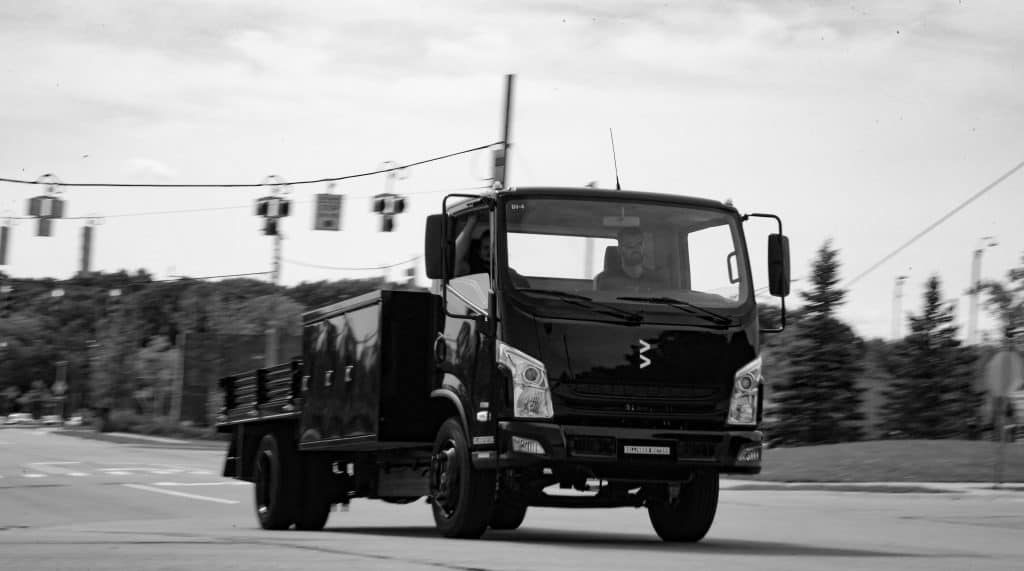
Mullen Bollinger Innovations BINI has made sales, a stock split and a move to OTC markets.
Bollinger Innovations Moves Trading to OTC Markets for Greater Flexibility
Bollinger Innovations, Inc. announced that its common stock will begin trading on the OTCID market on October 13, 2025, following its transition from the Nasdaq Stock Market. The move aims to reduce regulatory and compliance costs while maintaining transparency and investor confidence. The OTCID market, part of the broader OTC Markets, offers higher disclosure standards and improved communication tools, allowing Bollinger to focus on executing its long-term strategy in the electric vehicle (EV) market.
The shift follows Nasdaq’s notification that Bollinger no longer met the $35 million market value requirement under Listing Rule 5550(b)(2). Rather than continue the hearings process, Bollinger chose to voluntarily delist from Nasdaq and transition to the OTC Markets, where trading is expected to begin immediately after the Nasdaq suspension. The company will continue to meet SEC reporting requirements and explore opportunities for future uplisting to OTCQB or a return to a national exchange, along with possible listing on the London Stock Exchange’s Alternative Investment Market for broader global exposure.
CEO David Michery described the move as a strategic and cost-efficient decision that allows the company to redirect resources toward business growth. Bollinger Innovations continues to expand its commercial EV lineup, which includes the Mullen ONE, Mullen THREE, and Bollinger B4—electric trucks and vans designed for urban and fleet use. All models meet U.S. safety, EPA, and CARB standards, reinforcing the company’s commitment to producing clean, compliant, and commercially ready electric vehicles.
Previously Bollinger Innovations (NASDAQ: BINI) announced that its reverse stock split, effective September 22, 2025, was implemented to maintain compliance with Nasdaq’s \$1.00 minimum bid price requirement. The company emphasized that this will be its final reverse split for at least the next three years, signaling a commitment to stability and long-term growth.
In addition, Bollinger reported more than \$1 million in revenue from commercial electric vehicle sales in August 2025. CEO David Michery noted the decision was necessary to secure Nasdaq listing compliance while positioning the company for sustainable expansion and value creation for shareholders.
Bollinger Innovations Signs Agreement to Supply EVs for FedEx Service Providers
Bollinger Innovations, Inc. (NASDAQ: BINI), through its subsidiary Bollinger Motors, has signed an agreement with Ariel Fleet Holdings to deliver 30 Mullen THREE EV trucks and four Mullen ONE EV cargo vans for deployment with FedEx Independent Service Providers, Advanced Logistics Systems (ALS), and Springbok Holdings. The vehicles will be evaluated as last-mile delivery solutions across North Carolina, Virginia, and the mid-Atlantic region, supporting FedEx ISPs in reducing costs and emissions while improving fleet efficiency.
Company executives highlighted the performance and versatility of the EV lineup, noting that the Mullen THREE and Mullen ONE are designed to handle demanding delivery tasks while offering zero emissions benefits. ALS President Matthew Fuhr and his partner Garth Mulroy, co-founders of Ariel Fleet Holdings, emphasized their commitment to sustainable fleet solutions and reducing the carbon footprint of logistics operations. They see commercial EVs as a viable business model for improving daily last-mile operations while aligning with environmental goals.
Bollinger’s commercial lineup includes the Mullen ONE Class 1 cargo van, the Mullen THREE Class 3 chassis cab truck, and the Bollinger B4 Class 4 cab chassis—all designed with input from fleet operators and compliant with U.S. safety, EPA, and CARB standards. ALS and Springbok Holdings, already engaged in advancing EV adoption through collaborations with Virginia Clean Cities and federal grant programs, view this initiative as a step toward scaling electric vehicle deployment in delivery networks nationwide.